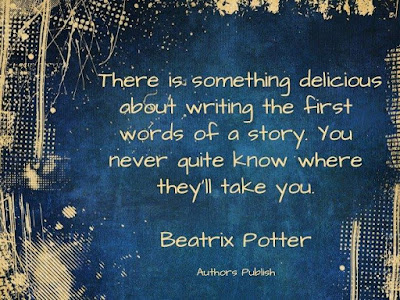Last night, Ken and I were watching tv, and a character on the show we had turned on made a statement that made me sit up and pay attention. She said, "Doubt is the driver of failure."
Six words with a strong message. Look at it again--
Doubt is the driver of failure.
Looking through my collection of poster quotes this morning, I found one that seemed to work quite well as it not only spoke about doubting yourself but gave a suggestion to help you overcome that problem.
Doubting yourself as a writer definitely is a problem. You will have to work at ridding yourself of doubting your own abilities a little at a time.
What causes self-doubt in a writer? It's not any one element. If you're a person who has dealt with self-doubt in other phases of your life, it's fairly easy to see how it can spill over into your writing life if you let it. The 'letting it' part is key.
If rejections come in one after the other, you probably have a reason for doubting yourself. Remember this when each rejection comes in--it is not 'you' the editor is rejecting, and it may not have been because your writing was not up to their standards. There are many other reasons editors reject your work. Among them are too many submissions on the same subject or they had recently published something of the same kind, and it was too soon to repeat. So, don't immediately lay the blame at your own feet.
Do you ever work hard on a story, then after proofreading, editing, and revising, you read through, and have a sinking feeling? Thoughts like This is not very good. Janice writes so much better than I do. Who would want to read this drivel? go through your head. Try not to believe them. If you do, you're going to have a much bigger hole to climb out of.
Let's look at the advice in the poster today:
When you start doubting yourself,
remember how far you have come.
Remember everything you have faced,
all the battles you have won,
and all the fears you have overcome.
In other words, start patting yourself on the back. Work at lifting yourself instead of becoming mired in doubt. For every negative thought you have, counter with a positive one. Remember the story about the little engine who talked himself into being able to do what the big engines did by repeating over and over I think I can, I think I can, I think... Pretty simple but it could help. The more we hear something the more apt we are to start believing it.
Don't let doubt be the driver to failure in your writing journey. Instead, look at those rejections as a lesson to learn. Analyze each one and try rewriting or subbing somewhere else. Last but not least, don't compare yourself to other writers. We're all individuals; we all reach our peak in different ways and in different amounts of time.
Is doing all the above going to make your writing life perfect? No, but it could make it a whole lot better.
























